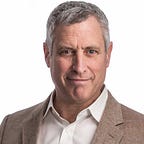Who (Or What) Killed Nipsey Hussle?
I had never heard the name Nipsey Hussle prior to his murder two years ago in the South LA neighborhood he came from. But on planet Earth, my ignorance about Hussle puts me decidedly in the minority.
Nipsey Hussle was one of the most successful and beloved hip-hop artists of his day.
But he was much more than that.
According to music journalist Rob Kenner’s endlessly compelling biography, The Marathon Don’t Stop: The Life and Times of Nipsey Hussle, the singer was a lot of things that people don’t traditionally associate with rap stars: a visionary; a marketing and branding genius; a real estate developer; and an individual who truly sought to reclaim his community.
Nipsey Hussle received his rap moniker from an older musician who recognized just how hard the young man, born Ermias Asghedom to an Eritrean father and an American mother, worked at everything he did.
The nickname, of course, is a riff on the name of the African-American comedian Nipsey Russell, who recited poetry as part of his act, which some people consider an early version of rap.
Nipsey Hussle was similarly of the streets and beyond them, in that he grew up in the Crenshaw/Slauson district of Los Angeles, gang territory, an identity he both embraced and outgrew.
As a child, he would take multiple city buses to Watts, Kenner recounts, to attend programs on how to use nascent computer music technology, like ProTools.
The journey itself was perilous, because Slauson kids were not welcome in Watts, but Hussle never let that fact, or anything, really, stand in his way.
Hussle…hustled, selling his mixtapes out of the trunk of his car, selling t-shirts and other items in parking lots, selling drugs, and saving money.
He didn’t just study ProTools — he also read books like The 22 Immutable Laws of Branding by Al and Laura Ries, commonplace in boardrooms but not exactly thick on the ground in South Central LA.
Hussle, from youth on, was a magnetic, compelling figure who made friends and kept them, and who created a massive audience for himself and his music, which received more than a billion downloads a year.
Yes, he was that big, and tell the truth — you had never heard of him, either.
Hussle’s favorite metaphor was that of the marathon, because of the effort it takes to achieve long-term success; hence the name of Hussle’s brand and clothing store and the title of Kenner’s book.
Along Hussle’s marathon route were creating a clothing line and a clothing store, launching a tech incubator in the Slauson district, launching a STEM program for kids in his community to create a pipeline from Slauson to Silicon Valley, and creating a coworking space for entrepreneurs in his neighborhood.
Hussle, despite his worldwide celebrity, was surprisingly accessible, never moving out of his neighborhood and frequently visiting his clothing store without any form of security, so as to meet fans, take photos with them, and sign autographs.
His availability was his undoing. On March 31st, 2019, another member of his gang, the Rollin 60’s, approached Hussle as he was surrounded by fans, and shot him to death.
The accused, Eric Holder, has been kept in solitary confinement for the past two years in an LA county jail awaiting a trial delayed by the retirement of the initial judge appointed to hear the case and then the COVID-19 pandemic.
What motivated Holder?
Apparently there was some conversation between him and Hussle, in which Hussle suggested that Holder might have been an informant or snitch for the police.
In gang territory, that kind of talk can get you killed.
After the accusation, Holder allegedly returned to the spot with two weapons and allegedly shot Hussle to death at close range.
Theories abound as to why Holder did what he did — the police put him up to it, the gangs signed off on it, people were jealous of Hussle’s success and flaunted wealth, you name it.
Often, the simplest answer is the right answer, and it may well be that Holder retaliated against Hussle over the accusation of being an informant.
Maybe the truth will come out at trial; maybe we will never know.
Yes, Hustle was a gangbanger, and God knows what he did in that capacity.
But how many gangbangers read Al Ries and create STEM education for kids, a tech incubator, and everything else Hussle did for his neighborhood?
If you’re wondering what to read next, try The Marathon Don’t Stop.
It will open your eyes.
It certainly opened mine.
